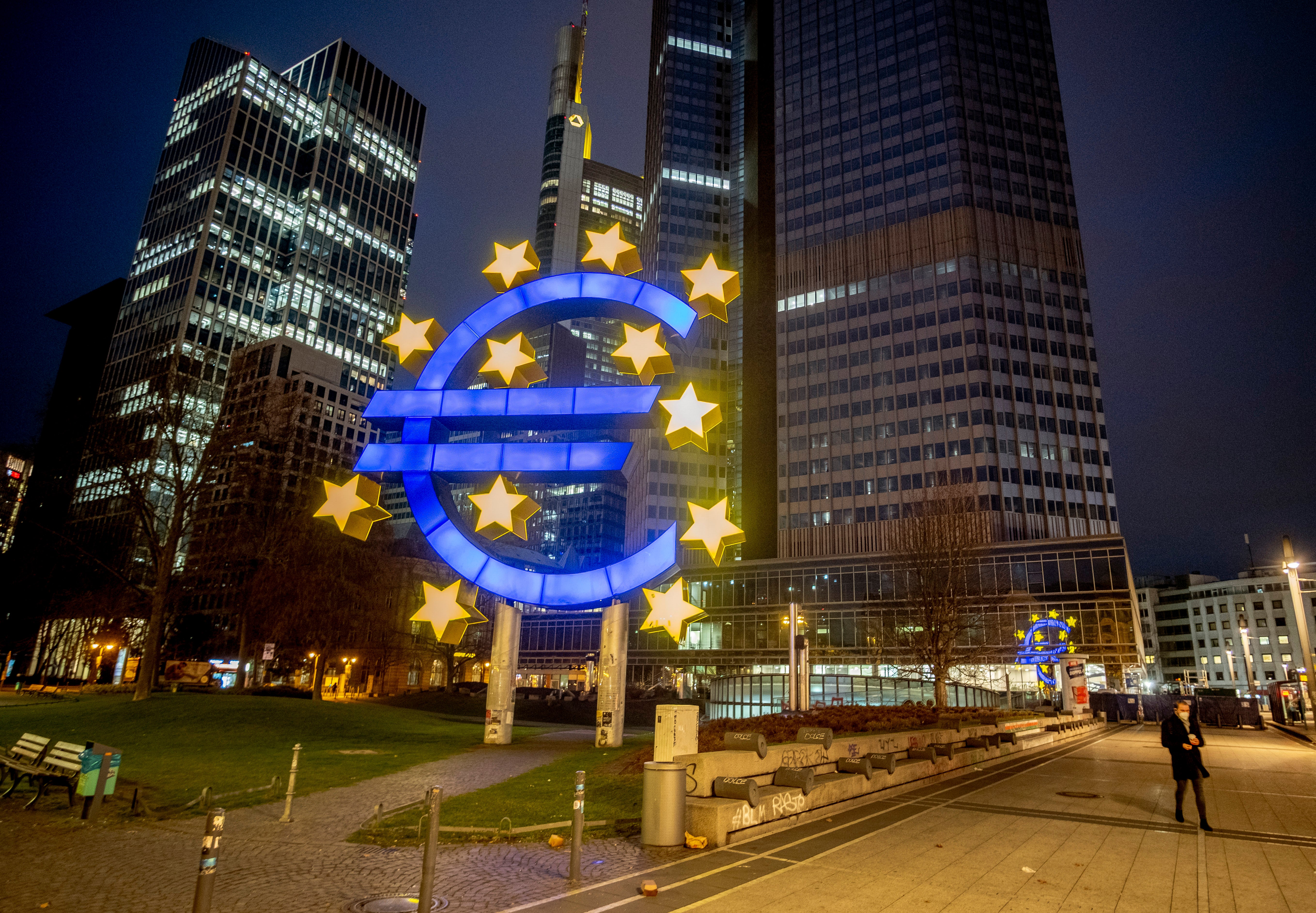Growth slows at end of 2021 in 19 countries that use euro
Growth in the 19 European Union countries that use the euro slowed down in the last three months of 2021

Your support helps us to tell the story
From reproductive rights to climate change to Big Tech, The Independent is on the ground when the story is developing. Whether it's investigating the financials of Elon Musk's pro-Trump PAC or producing our latest documentary, 'The A Word', which shines a light on the American women fighting for reproductive rights, we know how important it is to parse out the facts from the messaging.
At such a critical moment in US history, we need reporters on the ground. Your donation allows us to keep sending journalists to speak to both sides of the story.
The Independent is trusted by Americans across the entire political spectrum. And unlike many other quality news outlets, we choose not to lock Americans out of our reporting and analysis with paywalls. We believe quality journalism should be available to everyone, paid for by those who can afford it.
Your support makes all the difference.The European economy slowed noticeably at the end of last year as surging COVID-19 cases driven by the omicron variant piled on top of supply shortages and rising consumer prices. The result: An economic winter of discontent that may not lift until later this year.
Growth in the last three months of 2021 came in at 0.3% for the 19 countries that use the euro, the European Union s statistics agency said Monday. That was a slowdown from 2.2% in the July-September quarter.
For the year, growth came in at 5.2%, underlining that Europe’s economic recovery from the pandemic has moved somewhat slower than the rebound in the United States where 2021 growth was 5.7% compared with the year before. U.S. growth was boosted by what economists say was a comparatively larger share of federal stimulus spending than what took place in Europe.
A major reason for Europe’s slowdown was spiking COVID-19 cases that led to new and shifting restrictions and deterred cautious consumers from spending money at restaurants, hotels and entertainment. That comes on top of clogged supply chains, which are leaving the eurozone’s export-oriented manufacturing sector unable to fill orders, and higher prices for oil, natural gas and electricity, which are weighing on businesses and consumers.
And the friction in Europe’s gears isn’t over yet. Growth “might weaken further” in the current quarter, according to economists at UniCredit bank.
Germany, the largest eurozone economy, shrank 0.7% in the fourth quarter and would slide into a shallow recession if growth is negative again in the first three months of this year. Two straight quarters of declining output is one definition of a recession.
Europe also faces uncertainty amid tensions over Russia massing troops on the Ukrainian border, raising fears of an invasion as Russia demands security concessions from NATO and the U.S.
Fears of conflict have helped keep natural gas prices unusually high in Europe since Russia is a major supplier and Europe’s underground gas reserves are low. So far, Russia says it has fulfilled all its long-term supply contracts, and analysts speculate that any sanctions imposed by the U.S. or the European Union may seek to avoid directly targeting Russian energy.
Meanwhile, stronger recoveries in France and Spain helped buoy the overall eurozone economy in the last three months of 2021. Analysts foresee a pickup in the second quarter of this year as supply chain difficulties ease as hoped.
Europe’s inflation rate was a record-high 5% in December and unemployment was running at 7.2% in November, the latest figures available.